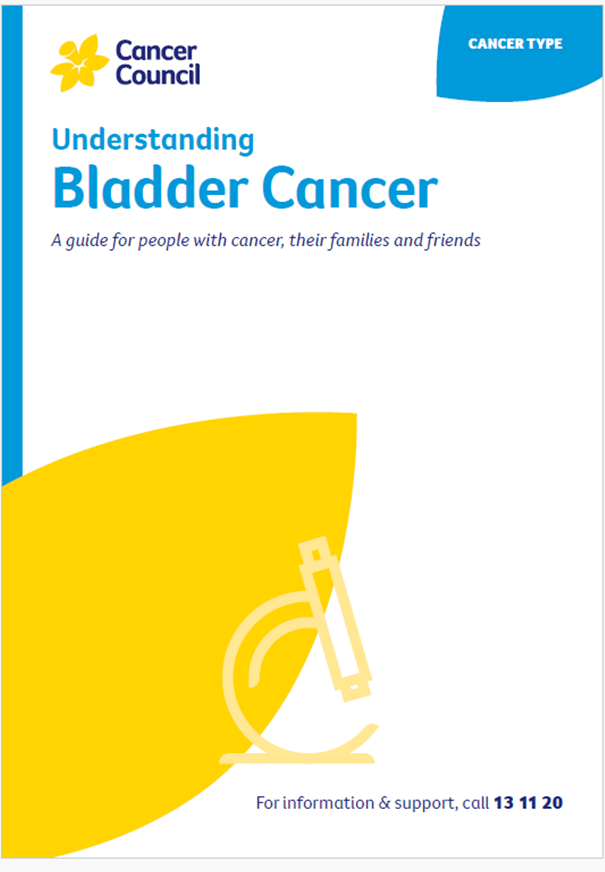MRI scan for bladder cancer
| What is it? | Your doctors may recommend an MRI (magnetic resonance imaging) scan to check for bladder cancer. This scan uses a powerful magnet and radio waves to create detailed cross-sectional pictures of organs in your abdomen. |
| What happens before the scan? | Before the scan, let your medical team know if you have a pacemaker or any other metallic object in your body. If you do, you may not be able to have an MRI scan, although some newer devices are safe to go into the scanner. Also ask what the MRI will cost, as Medicare usually does not cover this scan for bladder cancer. Before the MRI, you may be injected with a dye to help make the pictures clearer. |
| What happens? | You will then lie on an examination table inside a large metal tube that is open at both ends. The scan is painless, but the noisy, narrow machine makes some people feel anxious or claustrophobic. If you think you could become distressed, mention this to your medical team. You may be given a mild sedative to help you relax. |
| How long does it take? | The MRI scan takes 30–90 minutes. |
Learn more about MRI scans.
Before having scans, tell the doctor if you have any allergies or have had a reaction to contrast (dye) during previous scans. You should also let them know if you have diabetes or kidney disease or are pregnant or breastfeeding.
→ READ MORE: Further tests for bladder cancer
Podcast: Tests and Cancer
Listen to more of our podcast for people affected by cancer
More resources
Dr Prassannah Satasivam, Urologist and Robotic Surgeon, Epworth Hospitals and Cabrini Hospitals, VIC; Donna Clifford, Urology Nurse Practitioner, Royal Adelaide Hospital, SA; Marc Diocera, Genitourinary Nurse Consultant, Peter MacCallum Cancer Centre, VIC; Dr Renee Finnigan, Radiation Oncologist, Gold Coast University Hospital, QLD; Lisa Hann, 13 11 20 Consultant, Cancer Council SA; Dr Andrew Hirschhorn, Director of Allied Health and MQ Health Academy, MQ Health, Macquarie University, NSW; Anne Marie Lyons, Stomal Therapy Nurse, Concord Hospital and NSW Stoma Limited, NSW; John McDonald, Consumer; Prof Manish Patel, Urological Cancer and Robotic Surgeon, Westmead Hospital, Macquarie University Hospital, and The University of Sydney, NSW; Dr Jason Paterdis, Urological Surgeon, Brisbane Urology Clinic, QLD; Graeme Sissing, Consumer; Prof Martin Stockler, Medical Oncologist, The University of Sydney, Concord Cancer Centre, and Chris O’Brien Lifehouse RPA, NSW.
View the Cancer Council NSW editorial policy.
View all publications or call 13 11 20 for free printed copies.

